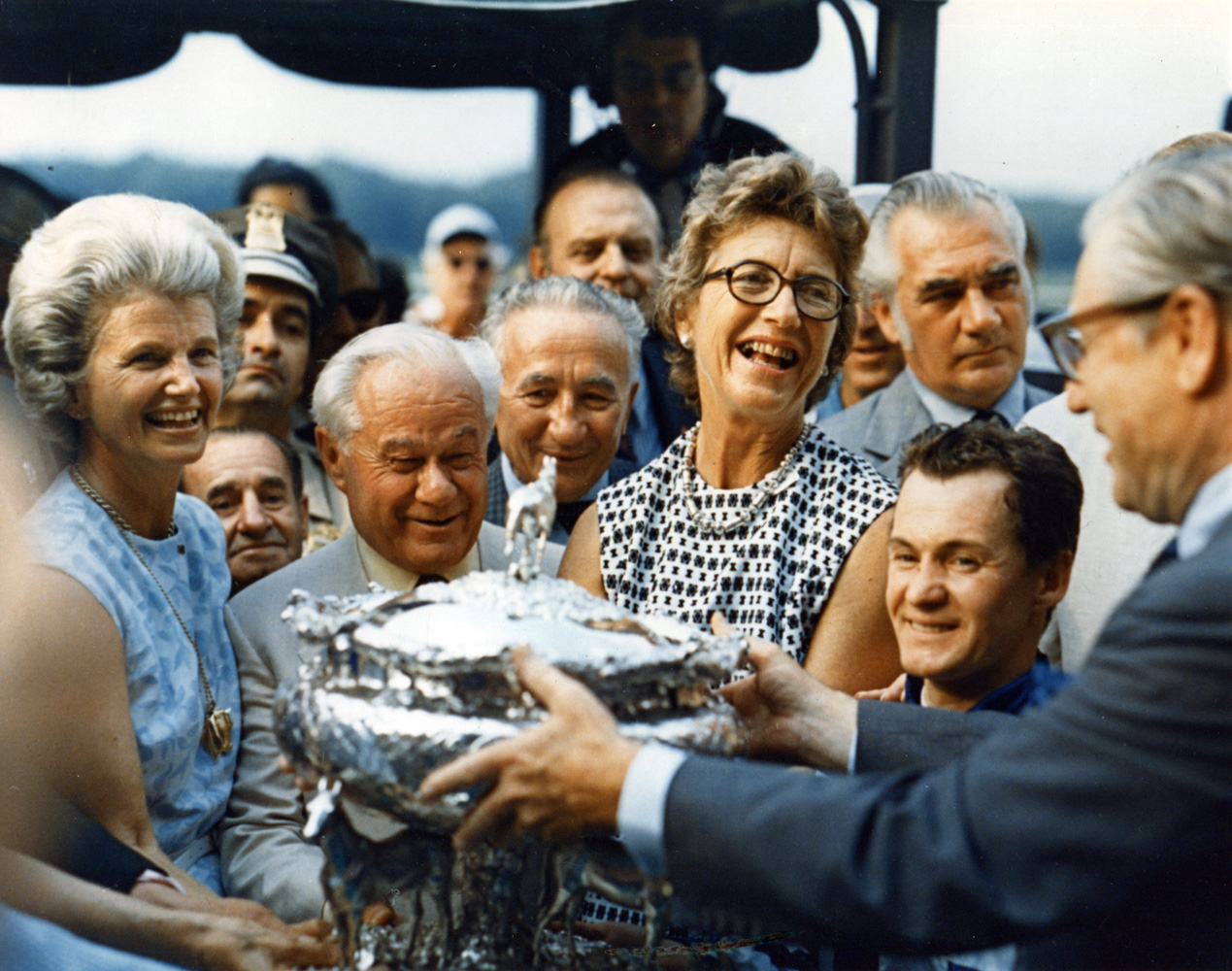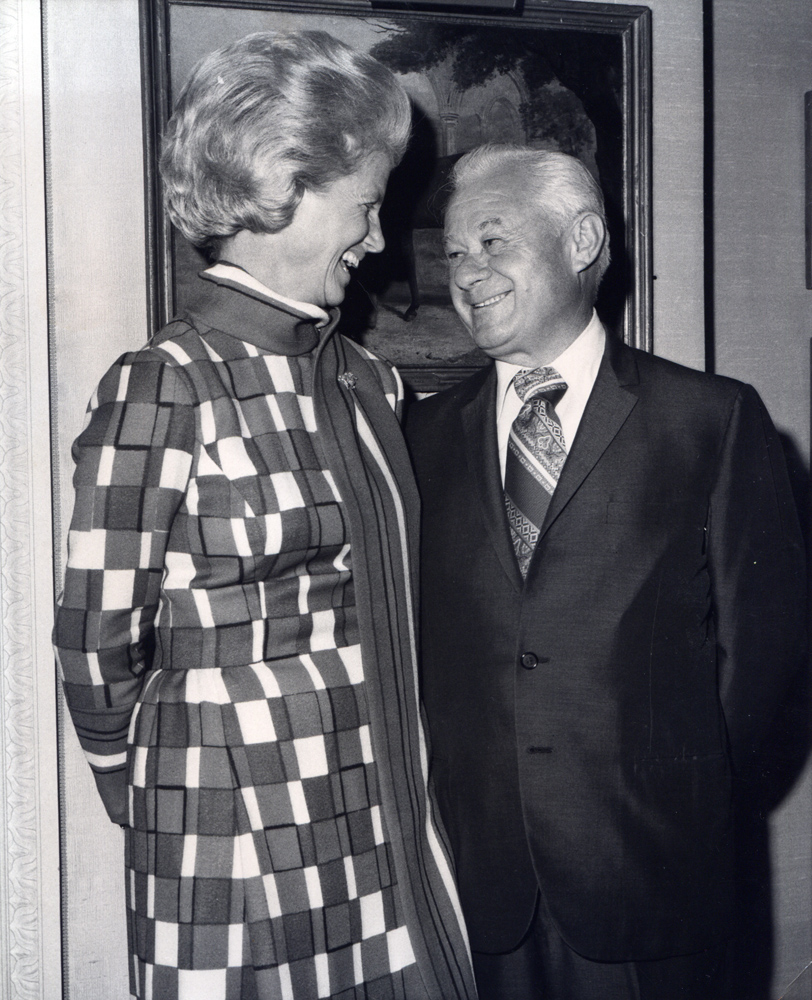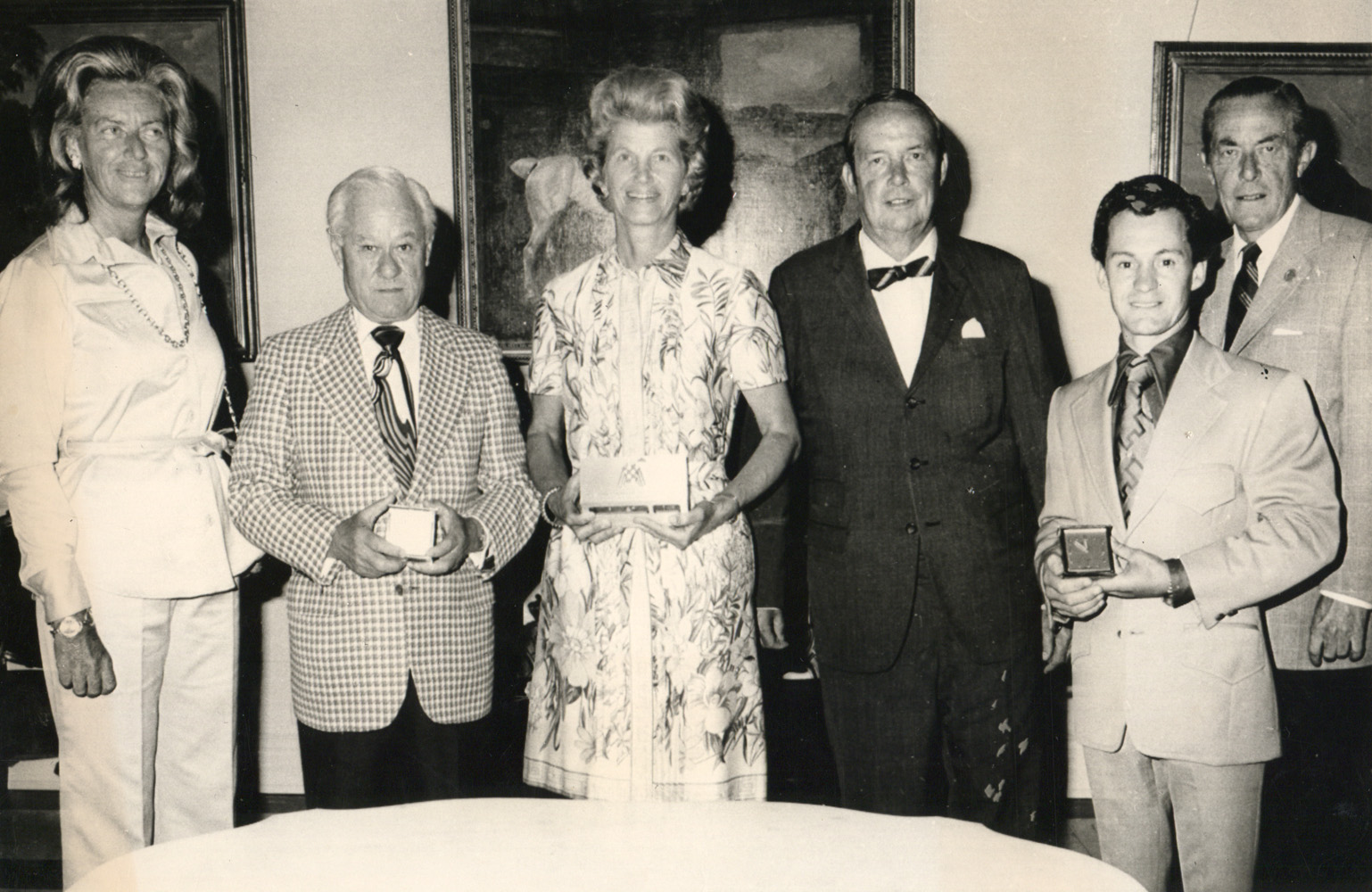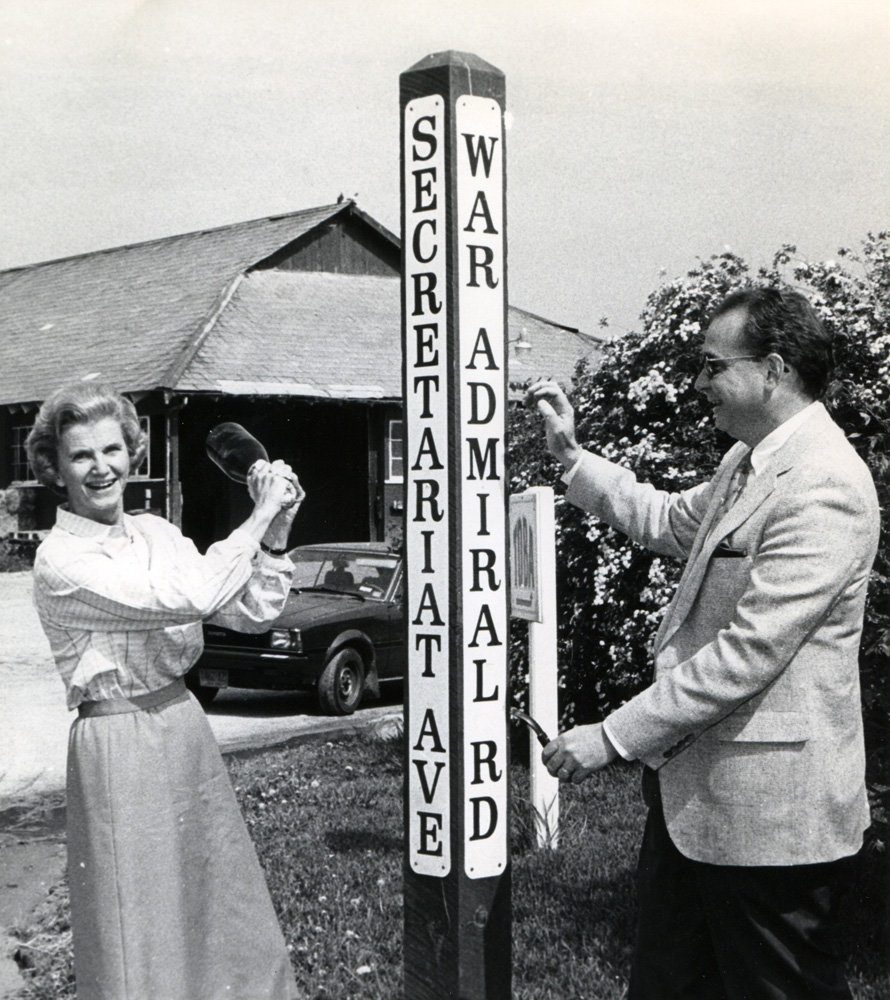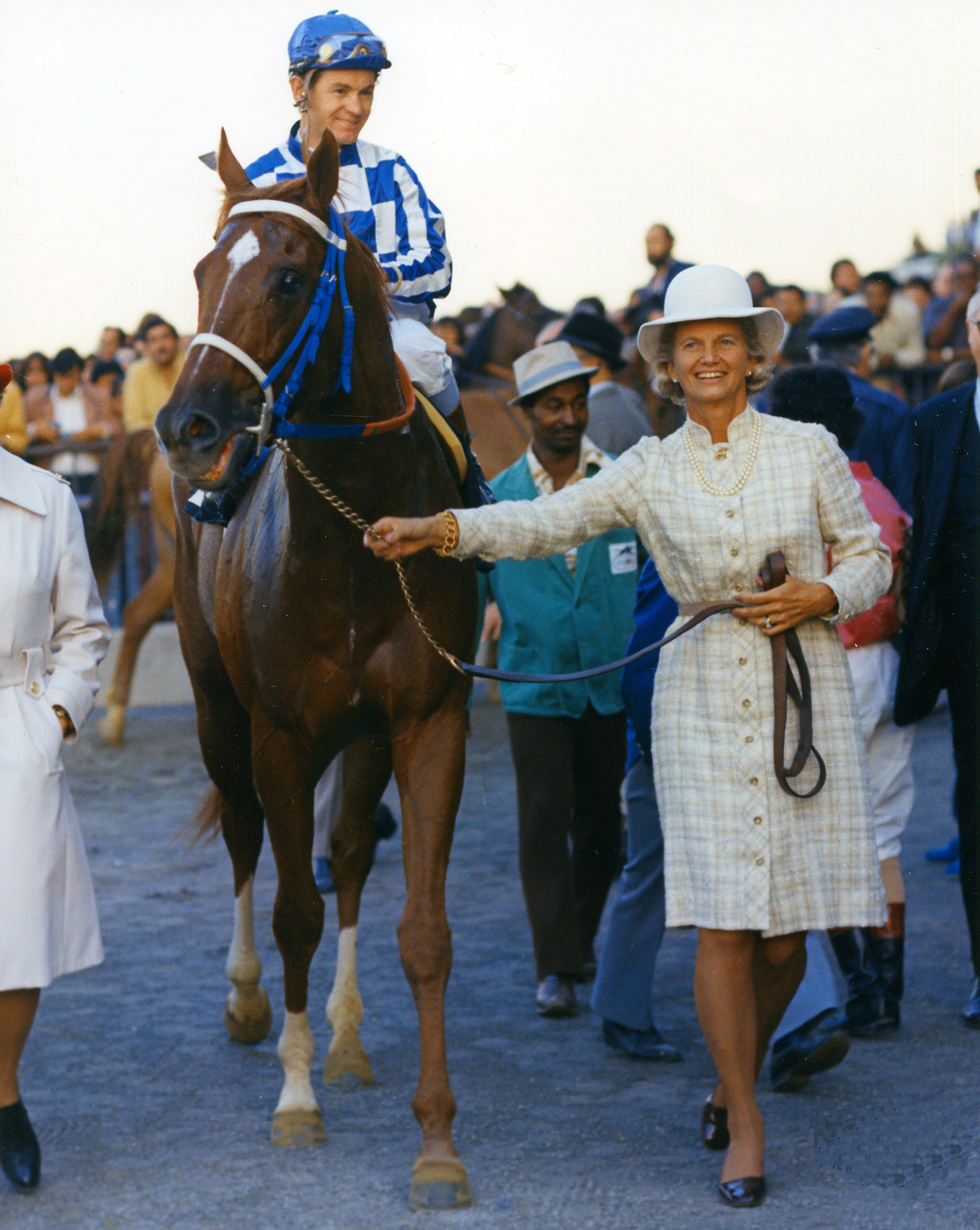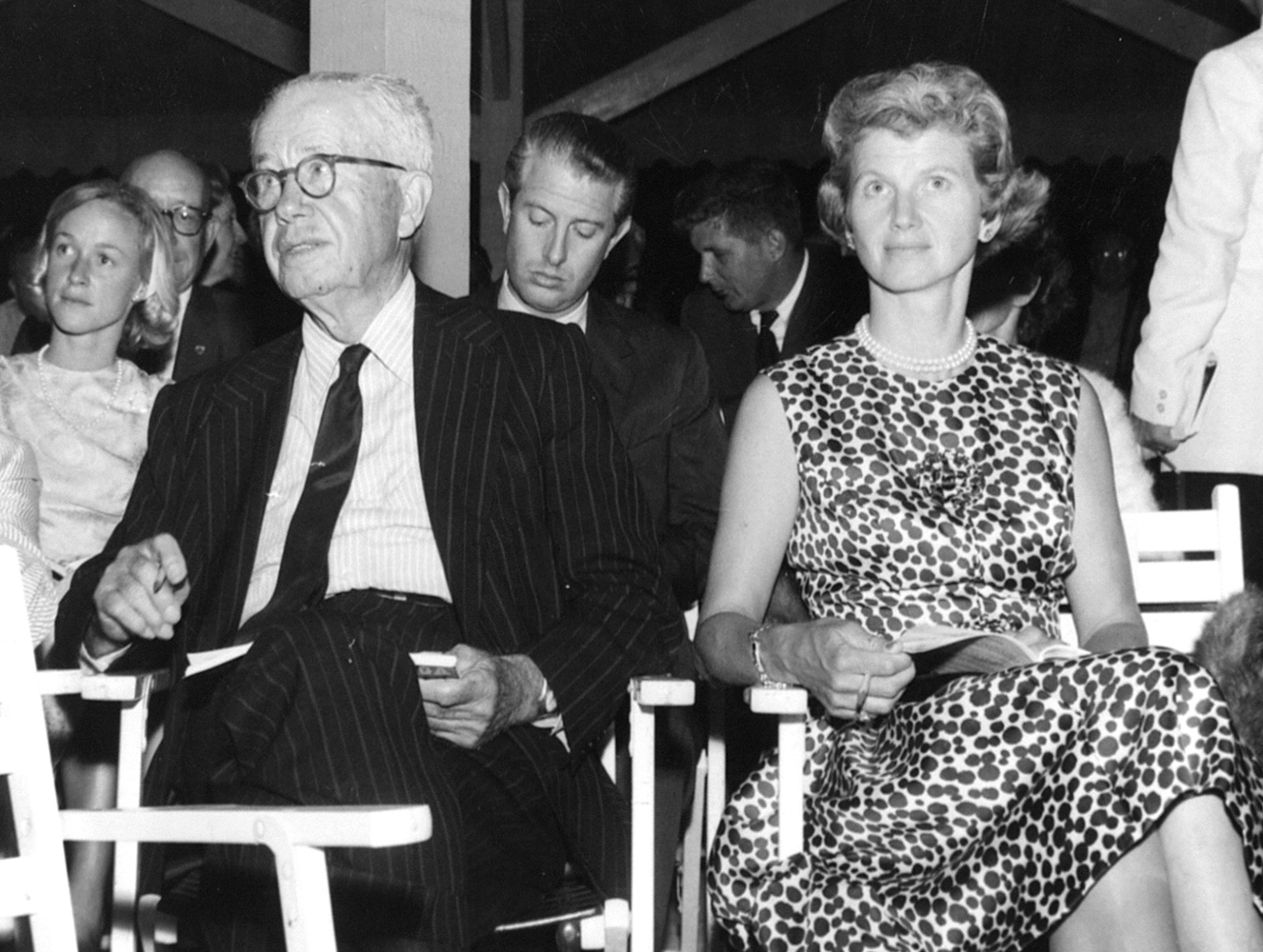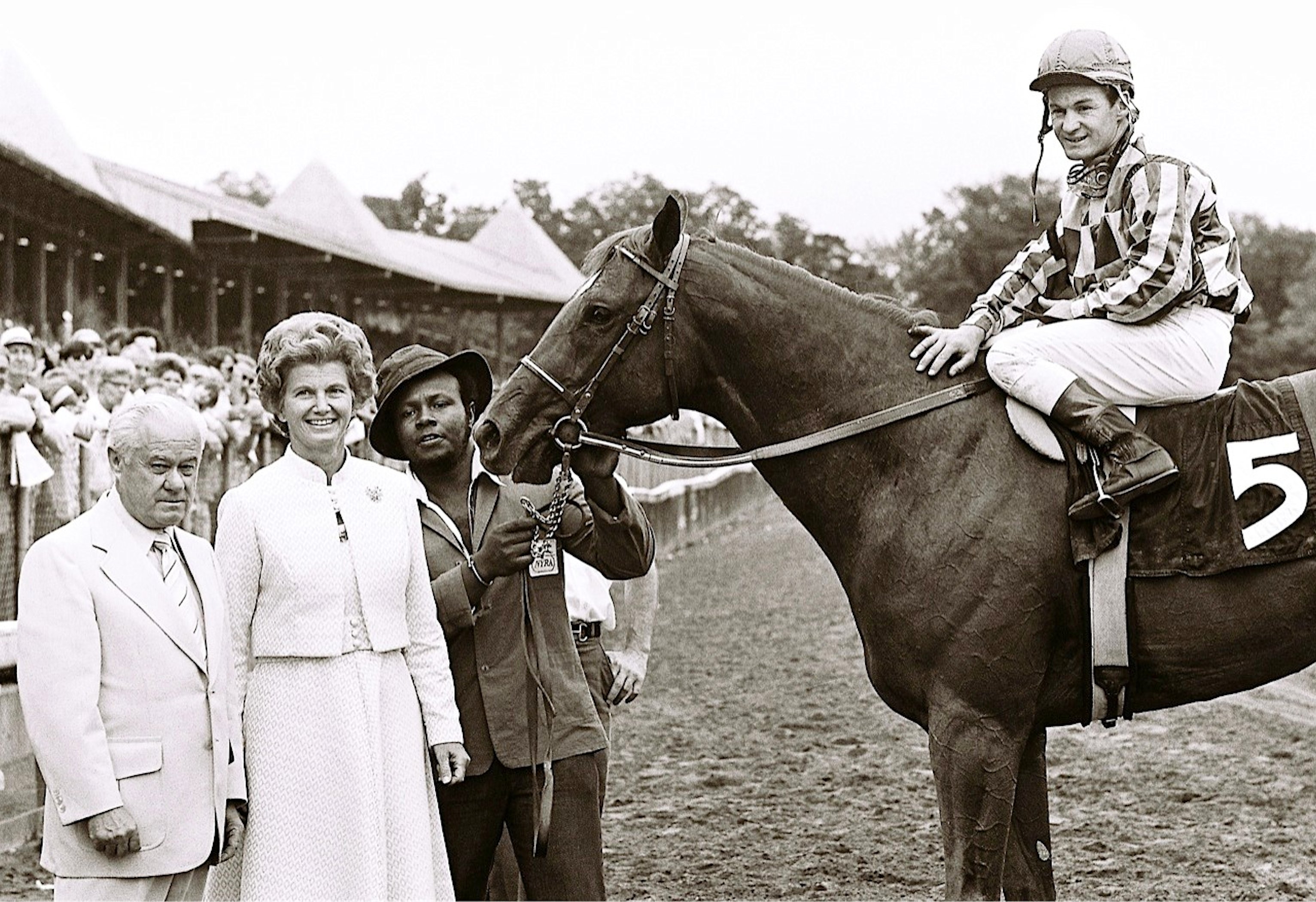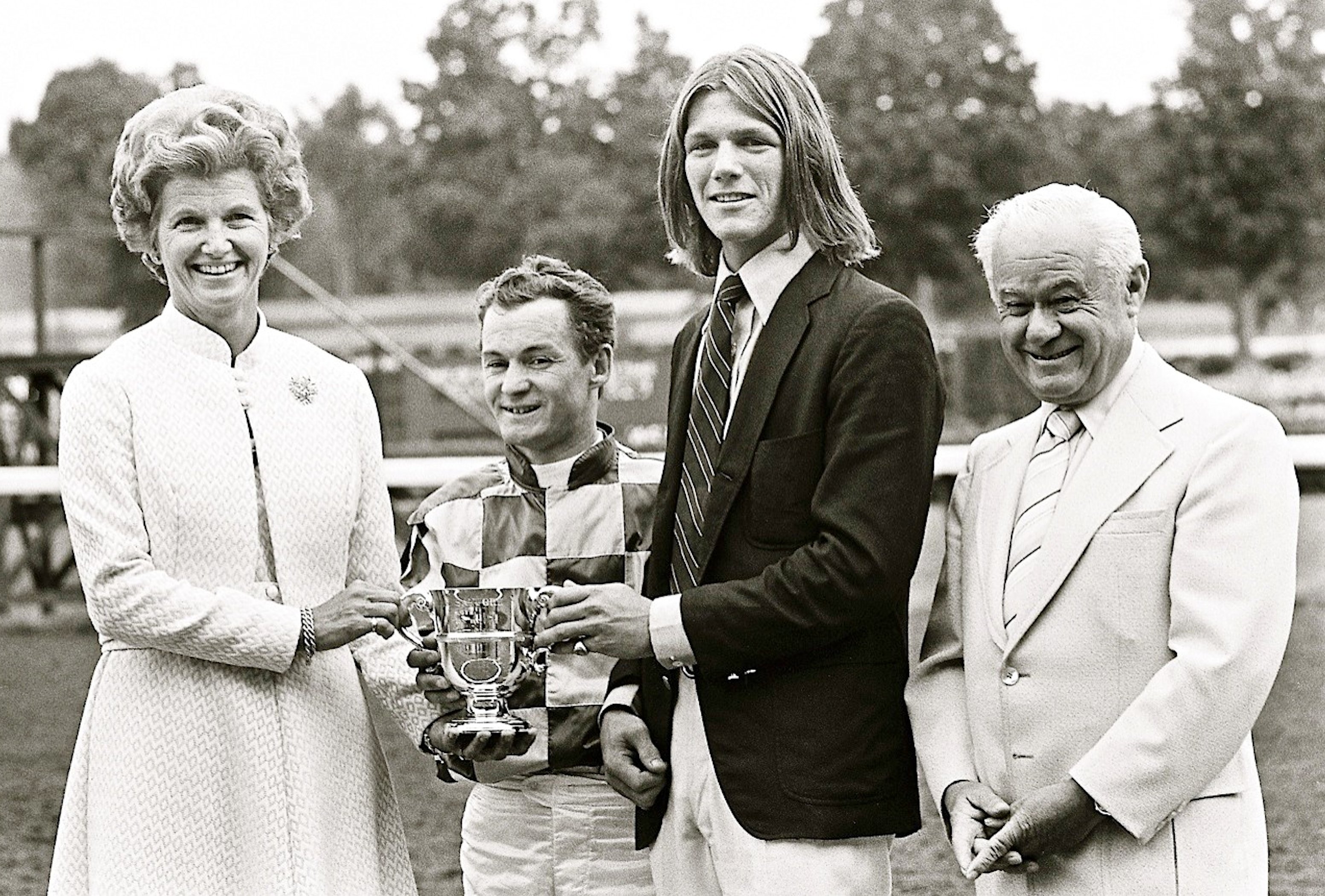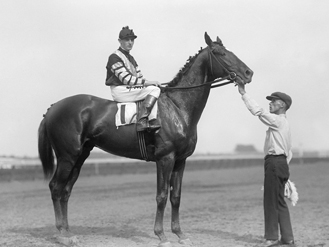Penny Chenery
Like Samuel D. Riddle in his ownership of Man o’ War, Helen “Penny” Chenery launched on a voyage with a strapping reddish racehorse and found that her identity would be ever inseparable from his. For Riddle, this engulfing synergy lasted for the final three decades of life. For Chenery, the intertwined identity lasted longer, the 44 years from Secretariat’s being ordained by the racing gods in 1973 until she passed away at age 95 in 2017.

2018
Jan. 27, 1922, New Rochelle, New York
Sept. 16, 2017, Boulder, Colorado
Biography
Like Samuel D. Riddle in his ownership of Man o’ War, Helen “Penny” Chenery launched on a voyage with a strapping reddish racehorse and found that her identity would be ever inseparable from his. For Riddle, this engulfing synergy lasted for the final three decades of life. For Chenery, the intertwined identity lasted longer, the 44 years from Secretariat’s being ordained by the racing gods in 1973 until she passed away at age 95 in 2017.
“In 1973, the country was in an emotional slump,” Chenery wrote in the New York Times. “It was the time of the Watergate and Nixon scandals, and people were looking for something wholesome to admire. I’ve always felt that because he was a chestnut horse and our stable colors were blue and white, he was running in red, white, and blue.”
What Chenery, a native of New Rochelle, New York, did was to embrace, endure, and savor the unique status that Secretariat brought. What she most definitely did not do was allow her life to follow a straight line devoid of variety. When it came to supporting horses through research, Chenery stepped forward in her fame to serve as president of the Grayson Foundation. For support of racehorses after their running careers, Chenery lent her prestige and dedication to the original, innovative Thoroughbred Retirement Foundation. To help guide the overall thoroughbred breeding and racing world, she served as president of the Thoroughbred Owners and Breeders Association from 1976 to 1984.
If Secretariat and Chenery was a kind of love story, it took its germination from another love story, that of Penny for her father. As one of the children of self-made industrial giant Christopher T. Chenery, Penny grew up admiring and loving many aspects he brought to life. An appreciation of horses was one of them.
Before Secretariat came into their lives, however, Mr. Chenery was consigned to the final stages of life under constant care. Penny had found herself plucked from family life in Colorado, not having been dissociated from her father’s vaunted Meadow Stud and Stable racehorses but hardly viewing them as central to her life. That, of course, changed.
Amazingly, Secretariat flirted with being second string. In 1972, Meadow Stable’s Riva Ridge broke through as winner of the Kentucky Derby and added the Belmont Stakes. How could a brash 2-year-old compete for headlines with such a culmination of decades worth of ambition? Well, he could do it by achieving something startling virtually every time trainer Lucien Laurin sent him and jockey Ron Turcotte to the post. By year’s end, Secretariat was so frequently compelling that he, a 2-year-old, was voted Horse of the Year the first of two times.
No horse had won the Triple Crown since Citation 25 years earlier, but that was the implied goal when young Seth Hancock syndicated Secretariat for more than $6 million. The deal called for Secretariat to race as a 3-year-old in the blue and white block silks of Meadow Stable and then to stand at stud at Claiborne.
Secretariat was merely spectacular in winning both the Kentucky Derby and Preakness in record time, but he was surreal in winning the Belmont Stakes. The factual numbers were difficult to take aboard emotionally — a 31-length margin of victory also in record time. Juxtaposed against a quarter-century of Triple Crown disappointments, Secretariat that day cloaked himself in an aura that tarried in the heart, despite a few defeats sprinkled among a sequence of additional satisfying victories.
Long after selling Meadow Stud in 1979, Chenery remained a respected presence in racing. Along with her various leadership roles in the sport, she was one of the first three women admitted to The Jockey Club in 1983 along with Martha Gerry and Allaire du Pont. Chenery never gave much thought to being a woman in the male-dominated sport.
“I did all the things I did out of instinct,” she said in an interview with The Atlantic in 2012. “I was not trying to be a role model.”
In 2005, Chenery moved to Colorado to be closer to her children. That year, she was presented the Eclipse Award of Merit for her contributions to thoroughbred racing. Even though it was not her intent, Chenery had indeed become a role model and one of thoroughbred racing’s finest ambassadors.
Achievements
Eclipse Award of Merit — 2005
Triple Crown Highlights
Won the 1973 Kentucky Derby — Secretariat
Won the 1973 Preakness Stakes — Secretariat
Won the 1973 Belmont Stakes — Secretariat
Media
